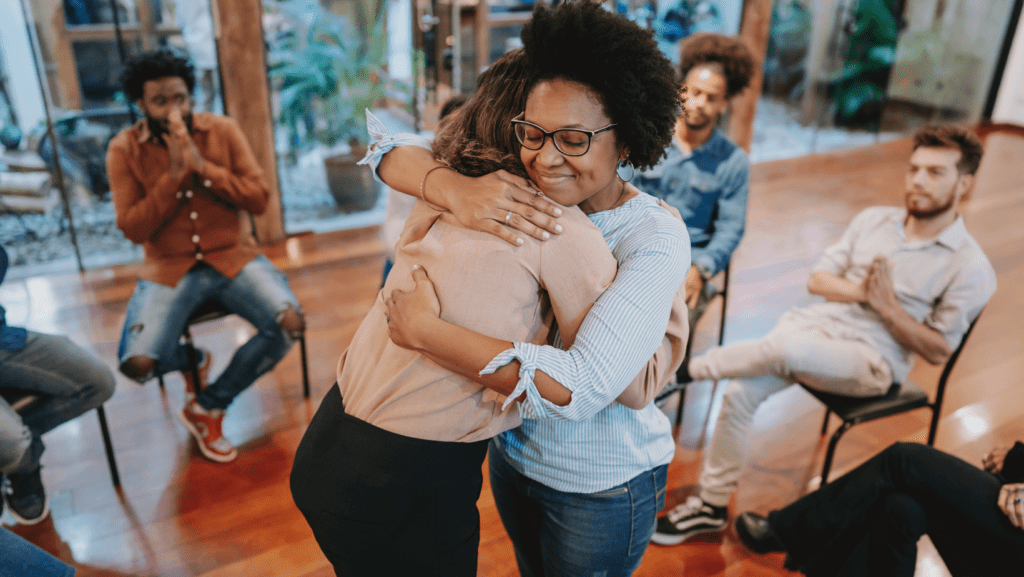An ayahuasca experience can be one of the most profound journeys of self-discovery, healing, and transformation. Many people report deep emotional releases, spiritual awakenings, and insights that reshape their perspective on life, relationships, and our connection to the universe. However, the true challenge begins after the ceremony—when the initial effects fade, and you’re left to integrate everything you’ve learned into your daily reality. The ayahuasca integration process is just as important as the ritual itself. Without a proper framework for reflection, grounding, and emotional processing, the experience can feel overwhelming or even fade into the background without lasting change. Some people struggle with heightened emotions, confusion, or a sense of detachment from their old way of life. Others feel inspired to make major life changes but don’t know where to start.
This guide provides practical, expert-backed tips to help you navigate the post-ceremony phase with clarity and intention. From mindfulness techniques to dietary adjustments and emotional support, you’ll learn how to embody the lessons of ayahuasca effects and ensure your journey leads to long-term personal growth. By taking a mindful approach to integration, you can transform your ayahuasca journey into a catalyst for lasting change—one that continues to unfold long after the ceremony has ended.
Understanding the Ayahuasca Effects: What to Expect and How It Heals
Before diving into the tips for integrating your ayahuasca experience, it’s important to first understand the nature of the journey itself. Ayahuasca is a deeply personal and transformative experience, and how it unfolds can vary greatly from one individual to the next. However, there are some common threads that many participants encounter during their Ayahuasca experience, which provide insight into the process and healing potential of the medicine:
Among the most common ayahuasca effects are:
- Visionary Experiences: Many people report vivid, surreal visions during their journey, often filled with symbolic imagery that can shed light on hidden aspects of their psyche. These visions can be intensely emotional, offering clarity on unresolved trauma, relationships, or life choices. However, it’s important to note that not everyone will experience dramatic visual phenomena. For some, the medicine works subtly, revealing insights through emotional shifts, sensory awareness, or deep inner knowing. Whether through visions or other experiences, the healing effects of ayahuasca still unfold for those who may not see vivid imagery.
- Emotional Healing: Ayahuasca is renowned for its ability to bring to the surface deep-seated emotions that may have been repressed for years. These emotions can range from grief and anger to guilt and sadness. In the safe, supportive space of the ceremony, participants are encouraged to confront and release these pent-up feelings, offering an opportunity for emotional catharsis. This process is often deeply therapeutic, allowing individuals to heal from past wounds and make space for emotional growth.
- A Connection to the Divine: For many, ayahuasca offers more than just emotional or psychological healing; it serves as a portal to a greater sense of connection. Many participants report feeling an overwhelming sense of unity with the universe, a higher power, or even the collective consciousness of humanity. This experience can be both humbling and awe-inspiring, leading to a profound sense of peace, love, and understanding. In addition, this connection to the divine often transcends the physical, leaving individuals with a renewed sense of purpose and alignment with their true selves.
Dr. Gabor Maté’s Experience with Ayahuasca
Dr. Gabor Maté, a renowned physician and trauma expert, has spoken openly about his transformative experiences with Ayahuasca. Throughout several ceremonies, Maté was confronted with the realization that he had unresolved trauma and emotional blocks, a humbling and eye-opening moment for him. Despite his expertise in trauma, the shamans, who did not know him personally, identified these issues and worked with him privately to address them. The profound Ayahuasca experience led to a deeper sense of presence, gratitude, and self-awareness. In his final ceremony, Maté experienced a vision of the word boldog—which means “happy” in Hungarian—written in the sky. This vision symbolized his release from past traumas and marked a shift in his understanding: he realized that past events didn’t have to define his identity or his future.
However, Maté emphasizes that while the experience was profound, the journey did not immediately lead to permanent change. After returning home, he struggled with feelings of despair and found that integrating the insights from the experience into his everyday life was an ongoing process. This highlights a critical point: integration is not immediate. Even the most transformative experiences require time, reflection, and consistent effort to truly become lasting changes in your life.
At the same time, while these experiences can be life-changing, it’s also essential to consider the legal status of ayahuasca in your home country or the country where you plan to participate in a ceremony. Since the legality of ayahuasca varies worldwide, it’s important to make sure that you are not only prepared mentally and emotionally but also legally.
Is Ayahuasca Legal?
The legality of Ayahuasca is complex and varies significantly across different countries. While the plants used to make Ayahuasca are not always illegal in many places, the brew itself, which contains the active ingredient DMT, enters a legal gray area in many jurisdictions.
- In Some Countries: In countries like the United States, Canada, and those governed by the 1971 Vienna Convention, the plants used to brew Ayahuasca are legal, but DMT, the psychoactive substance in the brew, is considered a controlled substance.
- In Peru and Brazil, ayahuasca has cultural and religious significance and is legal for ceremonial use.
- In Mexico, ayahuasca is generally legal for ceremonial use, but you should always check specific laws or ceremonies beforehand.
- In the United States, while ayahuasca itself is illegal in most states due to the presence of DMT, it is legal in certain contexts for religious use, especially for churches such as the Church of the Holy Light of the Queen and the Santo Daime Church that incorporate ayahuasca into their rituals. At the same time, with the increasing interest in psychedelics and their therapeutic potential, some cities in the United States have decriminalized the use of Ayahuasca and other substances. However, it’s crucial to understand that federal law still classifies Ayahuasca as illegal in the United States.
- In Canada, the legal status of ayahuasca is complex. It is illegal to possess or distribute ayahuasca due to the presence of DMT in the brew, but there are occasional exemptions for religious ceremonies.
Ayahuasca Integration Tips: How to Transform Your Experience into Lasting Change
Just as proper preparation is essential before drinking ayahuasca—through intention-setting, dietary adjustments, and mental readiness—the post-ceremony phase is equally crucial. Without a structured integration process, even the most powerful realizations can become distant memories, making it difficult to translate them into tangible life changes.

Here are 10 integration tips to keep in mind to maximize the Ayahuasca effects.
1. Create a Supportive Environment
Surround yourself with people who understand and respect the ayahuasca experience. Having a trusted community or group of like-minded individuals can provide a safe space to express your feelings, share insights, and receive guidance. This support can be especially helpful when navigating the emotional intensity of the post-ceremony period.
2. Journaling and Reflection
Writing about your experience helps process emotions, clarify visions, and reinforce insights. Set aside time each day to journal your thoughts and feelings. Reflect on any powerful visions, symbols, or messages you received. This practice will help deepen your understanding of the experience and keep the insights alive.
3. Slowly Integrate New Insights
Ayahuasca can bring profound realizations about yourself, your relationships, and your life path. Take your time to integrate these insights. Instead of making drastic changes all at once, slowly introduce small shifts in your life. This could include adjusting your habits, mindset, or even your career. Remember, lasting transformation is gradual.
4. Meditation and Mindfulness
Meditation and mindfulness practices are essential tools for maintaining the sense of clarity and peace you may have felt during the ceremony. Regular meditation helps keep you grounded and in touch with your higher self. Mindfulness helps you stay present and integrated with the wisdom you gained, helping prevent your old thought patterns from taking over.
5. Seek Guidance and Therapy
Sometimes the revelations from ayahuasca can bring up deep-seated traumas or emotions that need further exploration. Working with a therapist, especially one experienced in psychedelic integration, can be incredibly helpful. They can guide you through the emotional processing and support you in navigating the challenges of post-ceremony life.
6. Maintain a Healthy Lifestyle
Taking care of your body is vital during the integration phase. Physical health supports emotional and mental well-being. Eat nourishing, whole foods, exercise regularly, and ensure you’re getting enough rest. A balanced lifestyle enhances your ability to absorb and integrate the medicine’s healing effects.
7. Be Patient and Compassionate with Yourself
Healing is a process, and it takes time. After the ceremony, you might experience emotional highs and lows as you come to terms with the changes. Practice self-compassion during this phase, and be patient with yourself. It’s important to understand that full integration may take months or even years.
8. Stay Connected to Nature
Nature has an incredible way of supporting the integration process. Spending time outdoors, grounding yourself with nature, and reconnecting with the natural world can help maintain the sense of peace, connection, and clarity gained during the ceremony.
9. Set Clear Intentions for Change
Use the insights gained from your experience to set clear, actionable intentions. Whether it’s improving relationships, letting go of past trauma, or pursuing a new life path, take concrete steps toward making those changes. Break down your goals into manageable steps, and stay focused on your vision for the future.
10. Stay Open to Continuous Growth
The integration of an ayahuasca experience isn’t a one-time process; it’s ongoing. Continue exploring, growing, and learning from your experience. As time passes, you may have new insights or revisit old realizations with fresh perspectives. Remain open to continued self-discovery.
The Role of Integration After the Ceremony
After your ayahuasca ceremony, the real transformation begins—not just during the experience, but in how you integrate it into your everyday life. As Dr. Gabor Maté points out, insights gained during the ceremony don’t always lead to immediate change. The key is integration, which means processing your realizations and using them to make meaningful shifts in your life. Take time to reflect on your journey, whether through journaling, meditation, or therapy. This helps solidify your insights and makes them more accessible as you move forward. Reflection is crucial to turning your experience into lasting change. At the same time, healing is rarely done alone. Surround yourself with support systems—trusted therapists, integration guides, or a supportive community. These resources help you process your experience and stay grounded in the changes you’re making.
If you’re ready to explore the healing power of ayahuasca, Aloee Wellness offers a supportive space for lasting transformation. Our team will guide you through the entire process, ensuring your experience leads to meaningful, positive change. This includes personalized online integration counseling sessions, during which we will help you process your insights, address challenges, and create a practical plan for incorporating your newfound awareness into everyday life.


